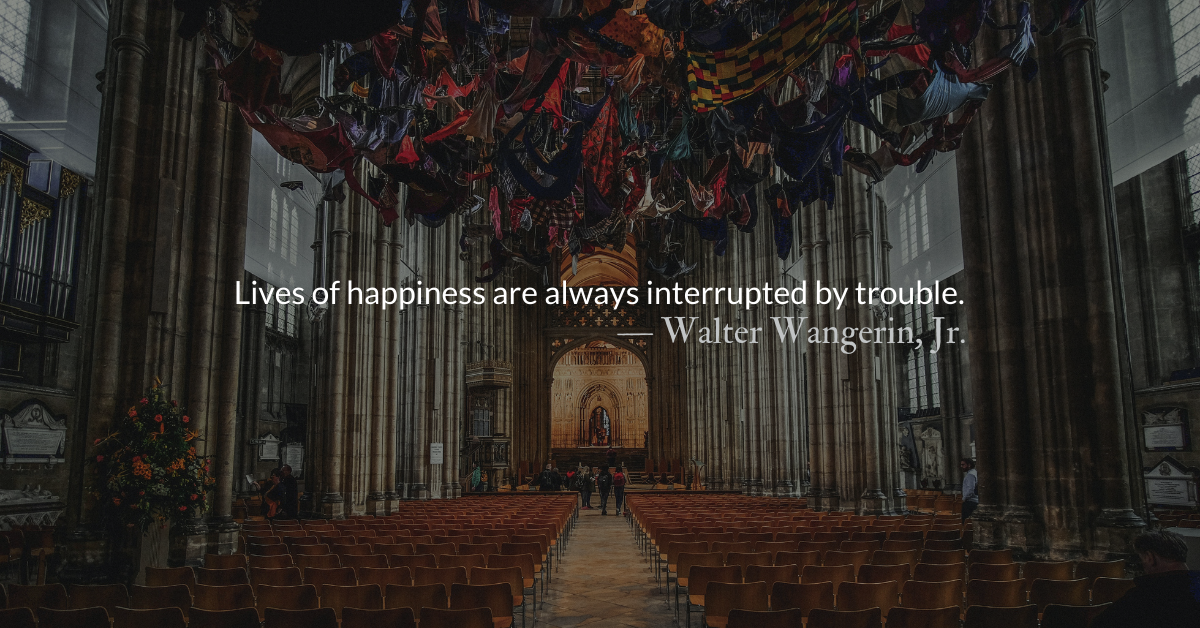Scripture Focus: John 11.32-35
32 When Mary reached the place where Jesus was and saw him, she fell at his feet and said, “Lord, if you had been here, my brother would not have died.”
33 When Jesus saw her weeping, and the Jews who had come along with her also weeping, he was deeply moved in spirit and troubled. 34 “Where have you laid him?” he asked.
“Come and see, Lord,” they replied.
35 Jesus wept.
Matthew 2.16-18
16 When Herod realized that he had been outwitted by the Magi, he was furious, and he gave orders to kill all the boys in Bethlehem and its vicinity who were two years old and under, in accordance with the time he had learned from the Magi. 17 Then what was said through the prophet Jeremiah was fulfilled:
18 “A voice is heard in Ramah,
weeping and great mourning,
Rachel weeping for her children
and refusing to be comforted,
because they are no more.”
Reflection: The Coventry Carol — Carols of Advent Peace
By Jon Polk
The peaceful sounding hymn, “The Coventry Carol,” with its calming chorus of “lully, lullay” (an onomatopoeia also found in the word lullaby), could be a perfect song for singing a sweet baby to sleep.
O sisters too, how may we do
For to preserve this day
This poor youngling for whom we sing,
“Bye bye, lully, lullay”?
The carol takes a decidedly dark turn in the second verse.
Herod the king, in his raging,
Charged he hath this day
His men of might in his own sight
All young children to slay.
Not what we might expect from a lullaby, these are the words of Bethlehem mothers grieving over their doomed sons. Yes, this carol depicts the often-overlooked postscript to the nativity story, the grim ‘Massacre of the Innocents.’
The mothers’ despair results from Herod’s order to kill all the male infants in Bethlehem under the age of two, his reaction to the inquiry of the Magi about the baby born to be king.
Certainly not a scene one typically finds in a modern Christmas pageant.
“The Coventry Carol” originates from 16th century Coventry, England, where it was performed, in fact, in a play called, The Pageant of the Shearmen and Tailors, a medieval performance depicting the complete nativity story from chapter two of Matthew, including the death of the young boys.
Of this horrific incident, Walter Wangerin writes, “It’s a hard thing to think about that event—especially now when it interrupts our Christmas joy. Yet it must be remembered, because lives of happiness are always interrupted by trouble.”
This haunting song reminds us that even the birth of our Savior is accompanied by grief and tragedy. For many, Christmas may not be ‘the most wonderful time of the year,’ but instead, a time when painful memories of missing loved ones or difficult days past overshadow our experience of the season.
Something lovely happens in the final verse, however.
That woe is me, poor child, for thee
And ever mourn and may
For thy parting neither say nor sing,
“Bye bye, lully, lullay.”
The lamenting mothers recognize “thy parting,” that Mary and Joseph are able to flee to Egypt with the baby. Solace can be taken in the knowledge that Jesus has escaped the wrath of Herod. Christ’s final ‘parting’ will come with his own brutal death, which will serve to bring ultimate peace to humanity.
If you are grieving over loss this Christmas time, know that is okay.
If you are lamenting the past this Christmas, know that is okay.
If you are struggling to feel “Christmas-y” this year, know that is okay.
Take heart. Christ is coming. Peace will prevail. The empty manger ultimately leads to an empty tomb.
Listen: The Coventry Carol by Alison Moyet
Read: Lyrics from Hymnary.org
Image Note: The picture used in our image is from an artistic display at the Canterbury Cathedral by the British artist Arabella Dorman. It is made up of hundreds of items of refugee clothing, found largely on the beaches of the Greek island of Lesbos. It is a reminder to us of the violence and darkness refugees flee from, as did the holy family, and the light of Christ that promises to overturn that darkness. The unedited image can be viewed here.
Divine Hours Prayer: The Refrain for the Morning Lessons
Be strong and let your heart take courage, all you who wait for the Lord. — Psalm 31.24
– Divine Hours prayers from The Divine Hours: Prayers for Autumn and Wintertime by Phyllis Tickle
Today’s Readings
Zechariah 8 (Listen – 3:33)
John 11 (Listen – 4:44)
Read more about End of Year Giving and Supporting our work
If you have not donated this year (or ever), please prayerfully consider joining our donors, with either a one-time or monthly donation.
Read more about Joy Despite Everything :: Joy of Advent
Martha greets us at the darkest point of her life. When faith has failed. When her wick smolders. Martha shows us how to wait.






